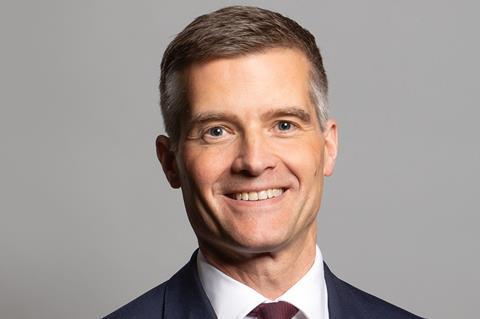
The government has set out the percentage of new zero-emission cars manufacturers will be required to produce each year up to 2030, following the Prime Minister’s decision to delay the ban on new diesel and petrol cars from 2030 to 2035.
The zero-emission vehicle (ZEV) mandate requires 80% of new cars and 70% of new vans sold in Great Britain to be zero emission by 2030, increasing to 100% by 2035.
The mandate sets minimum annual targets, starting with a requirement for 22% of new cars sold in 2024 to be zero emission, as originally proposed. This will rise each year up to 100% by 2035.
Transport secretary Mark Harper said: “The path to zero-emission vehicles announced today makes sure the route to get there is proportionate, pragmatic and realistic for families.
“Our mandate provides certainty for manufacturers, benefits drivers by providing more options and helps grow the economy by creating skilled jobs.
“We are also making it easier than ever to own an electric vehicle, from reaching record levels of chargepoints to providing tax relief for EV owners.”
The government has also introduced several schemes to lower the upfront and running costs of owning an EV. This includes a plug-in van grant of up to £2,500 for small vans and £5,000 for large vans until at least 2025 and £350 off the cost of homeplace chargepoints for people living in flats.
The measures give manufacturers flexibility through a trading scheme, enabling them to bank compliance in years when they exceed annual targets for use in future years or trade them with other manufacturers that have fallen short. In the first year, car manufacturers can borrow for up to 75% of their annual target, falling to 25% in 2026.
The ZEV mandate is a devolved policy and has been developed with the Scottish Government, Welsh Government and Northern Ireland’s Department for Infrastructure.
Mike Hawes, chief executive of the Society of Motor Manufacturers and Traders (SMMT), said: “The automotive industry is investing billions in decarbonisation and recognises the importance of the zero-emission vehicle mandate as the single most important measure to deliver net zero.
“We welcome the clarity the mandate’s publication provides for the next six years and the flexibilities it contains to support pragmatic, equitable delivery across this diverse sector. Manufacturers offer a vast range of zero emission vehicles, but demand must also match supply – that means making ZEVs affordable by incentivising drivers to make the switch now and delivering the infrastructure to meet consumer expectations.”
However, Sue Robinson, chief executive of the National Franchised Dealer Association (NFDA) which represents car and commercial retailers across the UK, expressed concern about the effect the new mandate would have on the car sales sector.
She said: “While NFDA and its dealer members are committed to helping government in reaching net zero and reducing emissions within transport, the government’s decision today to keep the electric vehicle sales targets for cars in the ZEV mandate unchanged generates concern among franchised dealers. These ambitious registration targets will create a difficult trading environment in conjunction with the recent decision to push back the ban of petrol and diesel vehicles from 2030 to 2035.
“As the consumer facing end of the industry, franchised dealers will have to continue to push for electric vehicles to meet these targets while the recent five-year delay will likely damage consumers demand for electric vehicles. To adopt a pragmatic approach to net-zero targets, NFDA strongly urges the government to introduce attractive incentives to make electric vehicles more accessible for less-affluent motorists.
“For vans, NFDA embraces the revised trajectories. This adjustment better aligns with market demand and establishes more attainable objectives within the sector.”
“NFDA expressed that the proposed targets were too ambitious for areas such as Northern Ireland, which are extremely underprepared in terms of electric vehicle infrastructure, with only 1% of UK chargers being installed in the province. We therefore welcome these regulations not applying to Northern Ireland while the Assembly at Stormont is not sitting. Today’s decision gives the sector in Northern Ireland time to catch up to the rest of the UK.
“Franchised dealers play a vital role in the transition to electric vehicles, contributing significantly to EV sales within the UK and investing millions into the transition to electric. We are committed to supporting consumers throughout this journey, ensuring they have access to the information needed to make the switch to electric. However, it is crucial that government policies align with these efforts to create a seamless transition.”
































